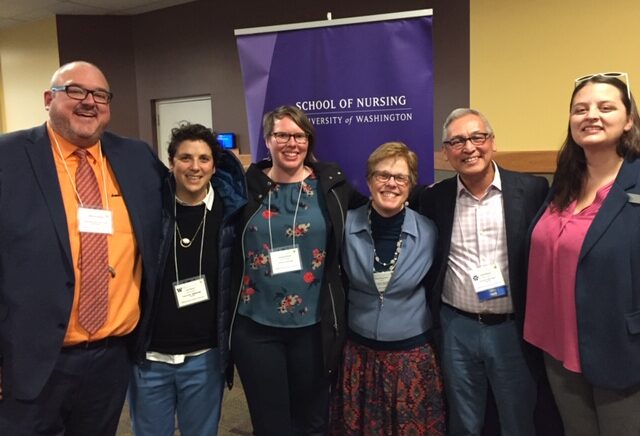
Achieving true health improvement requires a broad perspective that addresses the root causes of health inequities and implements evidence-based policy, systems, and environmental changes in collaboration with affected communities.
This certificate aims to equip nurses and other professionals or graduate students with the knowledge and skills needed to tackle the social and environmental determinants of health and health equity. Students will focus on antiracism, social determinants of health, and fostering community partnerships.
Key outcomes upon completing this certificate include:
- The ability to describe principles and models for effectively engaging with communities and systems-level stakeholders on issues impacting population health and health equity.
- Identifying how culture, values, language, and social position influence engagement and partnership strategies.
- Generating recommendations to build and sustain partnerships between communities and systems for promoting health equity and delivering culturally relevant services to diverse populations.
- Describing interdisciplinary systems-thinking frameworks and methods for implementing practices and driving systems change.
- Understanding how prevention and health and social service delivery systems can work together to enhance population health.
- Recognizing how policy decisions at various system levels affect population health status, health and social services delivery, and utilization.
The certificate requires 15 credits to complete: six (6) credits of required courses, a three (3) credit independent study capstone, and six (6) elective credits, which can be taken from the School of Nursing or other departments across campus. Of these 15 credits, nine must be earned in courses numbered 500 and above, and nine must be from graded courses.
You must:
-
- Be a baccalaureate- or graduate-prepared professional in nursing or other related field.
- Be a student of Advanced Practice Registered Nursing (APRN), Nursing PhD programs, or similar in related fields such as Master of Public Health, Master of Social Work, Master of Science, other PhD tracks, and other health-related graduate degree tracks.
- Have an interest in strengthening their knowledge and skills in systems and population approaches to health equity.
- Work (or wish to work) with historically marginalized communities using community-based participatory approaches.
New applicants or re-applicants
New applicants and those re-applying to our programs will apply through the UW Graduate School.
You will need to:
-
-
- Order transcripts from every college or university you’ve attended. While we accept unofficial transcripts for initial review, you must provide official transcripts if you’re admitted and decide to enroll in the program.
- Ensure that any degrees earned are clearly listed on the transcript, including the date the degree was conferred.
- For degrees from institutions outside the United States, upload an official transcript translated into English along with a detailed credential or transcript evaluation.
- You don’t need to submit a separate foreign transcript if you attended a foreign university through a study abroad program and the credits are included on your home institution’s transcript.
-
In addition, you’ll need to provide:
-
-
- A resume
- A statement of purpose
- Two letters of recommendation
- Proof of English proficiency if English is not your first language
- An optional statement
-
Apply As a New Applicant or Re-Applicant
Current UW PhD in Nursing Science or DNP students
| DNP Population Health & Systems Leadership students do not need to apply to the Population Health Equity certificate program. This information is fully covered in the PHSL program. |
Current UW PhD in Nursing Science or Doctor of Nursing Practice students should submit:
-
-
- A “Goal Statement” as your letter of intent describing why you are interested in obtaining the Population Health Equity Graduate Certificate and how you will use this training to inform or enhance your advanced nursing career (refer to the online application or instructions for the prompts), and
-